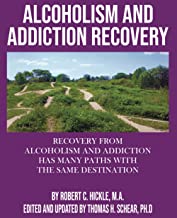Withdrawal From Substance Disorder
Resources for Patients and Caregivers
Physical and mental symptoms that occur after stopping or reducing intake of a drug.
The characteristics of withdrawal depend on what drug is being discontinued.
Symptoms may include anxiety, fatigue, sweating, vomiting, depression, seizures, and hallucinations.
Treatment includes supportive care as well as medications to address symptoms and prevent complications.
Cluster Number:
Wiki Number: 57-Withdrawal from Substance Disorder
Diagnosis:
US Patients:
World Patients:
Sex Ratio:
Age Onset:
Brain Area:
Symptoms:
Progression:
Causes:
Medications:
Therapies:
Youtube Video:
Alcohol Withdrawal Syndrome and Delerium Tremens
Amazon or Library Book: Alcoholism and Addiction Recovery
Click the book to link or order from Amazon.

